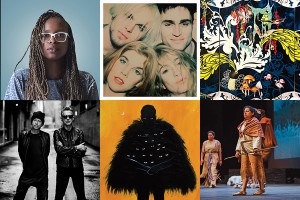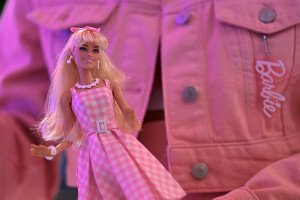Tonight: The Legendary Al Kooper
Bobby Gregg’s opening snare drum snap of Bob Dylan’s “Like a Rolling Stone” has been described as a “shot heard ’round the world,’ the opening salvo that introduces the classic game-changing 1965 single that sparked a new sound and direction in pop music. Even more essential to the track is the singular riff on the Hammond B-3 organ that comes in right on the tail of the downbeat. It was played by Al Kooper, a 21-year-old session guitarist who happened to be at the studio as a guest of the producer, Tom Wilson. Kooper is playing tonight at the Berklee Performance Center with stellar guitarist and bandleader on the Conan O’Brien show, Jimmy Vivino, in a tribute to Mike Bloomfield.
Kooper has a long line of amazing stories, many of which have been collected in his memoirs, Backstage Passes and Backstabbing Bastards. As the legend goes, he was merely a kid who had been putting in the hours playing guitar on Tin Pan Alley pop songs, even co-writing a few hits, such as “This Diamond Ring,” when he, like so many others, fell under the sway of Dylan, eventually playing some coffee house gigs in Queens under the nom ge guerre, “Al Casey.” Wilson, aware of his friend Kooper’s admiration of Dylan, asked him if he wanted to hang out at the Dylan session as an observer. As any good musician would, he brought along his guitar, just in case. Upon the arrival of Dylan with the incendiary blues guitarist, Mike Bloomfield, however, Kooper quietly slipped his guitar back into its case and sidled off into the control room. Hearing Bloomfield simply warming up made him realize he was in over his head.
Wilson had moved the hired keyboardist, Paul Griffin, from organ to piano. Kooper practically begged Wilson to allow him to play the organ, for he had a “good part to play on this song” Wilson demurred, pointing out that Kooper was not an organ player. But before the producer could actually say the word, “no,” he was called away to another studio obligation, Kooper “claimed victory” and went into the room with the band and sat at the organ, not really knowing how to turn the thing on. Luckily, Griffin had left the organ running. Powering up these Hammonds is like trying to get a 1930s tractor engine to turn over.
Long story short, Kooper bluffed his way into playing one of the most memorable riffs on one of the most memorable songs of all time. Listening to the playback, Dylan said, “Turn the organ up.” Wilson, perhaps embarrassed that he had let Al slip in and play, answered, “That cat’s not an organ player.” Dylan shot back, “Hey, now don’t tell me who’s an organ player and who’s not. Just turn the organ up.”
From then on, Kooper was called in to tons of sessions to provide that sound, one of the quintessential sounds of the Sixties. One of the main reasons I have been talking to him lately is for the book I am working on about the songs of the Rolling Stones — the band, not the song. Kopper was called in to play on “You Can’t Always Get What You Want.” As with the Dylan track, Kooper’s stamp is distinct and a huge contribution to one of rock’s most monumental tracks.
Kooper went on to great heights in the music biz as a writer, arranger, band founder (Blood, Sweat, and Tears), producer, and A&R man. He discovered Lynyrd Skynyrd playing in an Atlanta club, signed them to his label, and produced their first three albums. The producer of “Freebird” lives and walks amongst us, ladies and gentleman.
Early on, Kooper put together another legendary project that resulted in a classic record called Super Sessions, a collaboration with himself, his friend, Mike Bloomfield and a young Steven Stills. Could you imagine a time where a record of essentially blues jams could be a top seller? It happened.
Eventually, Kooper’s undeniable list of accomplishments attracted him to the people at Berklee, and about 15 years ago, he was enlisted as a professor there, a position from which he is now retired. Tonight he returns with the dynamic Jimmy Vivino, who grew up as a huge fan of Bloomfield, in tribute to the late guitarist whose list of accomplishments through the 1960s, ’70s, and ’80s was rich before he passed away too young.
One story that he told me is not in his book. He grew up with Paul Simon, went to high school with him, and occasionally played some gigs in Simon’s dad’s society/ballroom band. Well, one night after Simon’s and Kooper’s careers had started to take off, Al played Paul a record from the gospel group, the Swan Silvertones. Simon was smitten and asked to borrow it. “I don’t know, man,” Kooper told him. “It’s a rare, hard-to-find record.” Simon promised to return it. Kooper reluctantly agreed, A few weeks later, Kooper gets a call in the wee small hours of the morning from Simon. “Hey Al, you have to get up here so I can play you this new song.” Kooper initially tried to beg off, pointing out that it was not yet dawn and he lived all the way downtown while Simon lived on the Upper East Side of Manhattan. Paul insisted, so Al got in a cab uptown. He described the scene for me: candles lit, the sun peeking out over the East River, and Paul Simon, his old high school buddy starts to play him a song inspired by the Swan Silvertones record. It was “Bridge Over Troubled Water.”
I said, “Wow, Al. How come that’s not in the book?”
“Hey, man,” he shrugged. “I got a lot of stories.”


